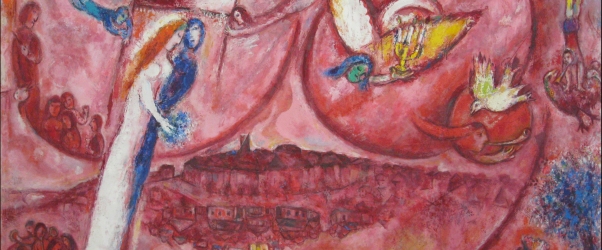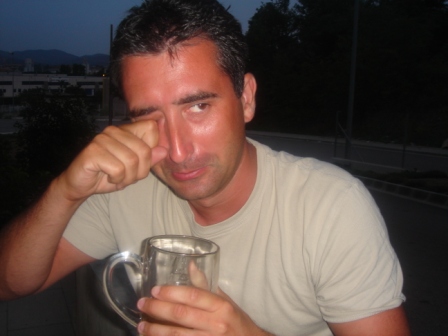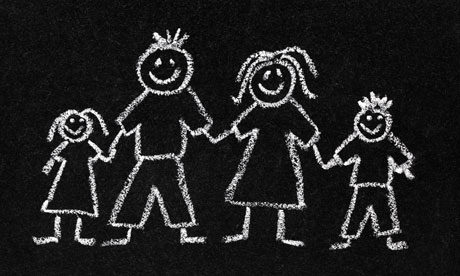Michael Voris sounds off in
this video about bad parish closings in the Archdiocese of New York and the bad Cardinal Dolan who's supposedly favoring bad liberal parishes to be kept open over good "traditional" parishes to be closed. Michael makes it sound like a pretty bad and ugly scene in NYC. He covers one potential parish closing that's created a certain amount of buzz among some of us, Church of the
Holy Innocents in mid-town Manhattan, West side. Here is an
accounting by one blogger and another
here.
I made a point of attending Candlemass at Holy Innocents a couple years ago, partly to attend a Candlemass service, but also to take in the restored Brumidi mural. The Mass was beautiful, reverent and packed, but the church itself, exterior and interior,apart from the Brumidi mural, emodies the gritty, busy, dirty neighborhood where it's located. Never a neighborhood where I'd choose to linger, I felt the same about the church sanctuary.
One visit for Candlemass doesn't mean much of course,and the church may just be in need of some tender, loving care. It is the case that Holy Innocents is now under the direction of the good Fr. Rutler and it does appear that he was rather unceremoniously decamped to St. Michael's all the way west from
Church of Our Saviour where he left behind a renewed spiritual life, aesthetic revitalizations along with many saddened parishioners. All this accurately noted by Voris.
One of the things Michael Voris isn't accurate about and never fully explains is the Archdiocese-wide,
Making All Things New initiative. Voris only mentions a "ten-year gallop" of closing parishes, a "massive contraction" in the diocese with a "hit list" where the litmus test for survival is how traditional the parish is, and if it's traditional, it goes on the chopping block. On one side is the good Holy Innocents, good Our Saviour and good St. Michael's among Voris's "thriving community" parishes list as opposed to the bad
St. Francis of Assisi on 31st Street (gay-friendly) and the deplorable
Church of St. Francis Xavier on 16th Street (gay-friendly). Michael Voris's analysis spirals ever-downward with doom, gloom and dire warnings. Michael, why so much nay-saying with most of it not fully explained?
There's no mystery about
Making All Things New. It was
previewed for us back in 2010 by then-bishop Dolan and he made very clear what would be happening to some of the 400 parishes in the diocese. They would be merged with others creating clusters and some will be closed. There's a
wealth of information on the initiative on the archdiocese website and it's reported on frequently in parish bulletins and Catholic media. My local parish regularly informs of the meetings, reports and progress of the initiative and most everyone is quite aware of the new clusters being formed, including the saddened parishioners at Our Saviour who, yes, do feel deprived of their pastor and in some sense their church.
Closer to home, in my own neighborhood,
St. Brigid's was
scheduled for destruction back in 2001. Its closure had nothing to do with being either Voris's good or bad, though maybe it was ugly in the sense that it was literally falling down. Located all the way over on Avenue B, St. Brigid's is as close to being as far east as you can get without being in Brooklyn and it's demise would have held little interest for anyone except its faithful parishioners. As one of them
commented: “I kept thinking: If we lived on Park Avenue or Madison Avenue, they would not be treating us like this.” I don't think Michael Voris would have cared much about St. Brigid's either. There was no way to spice up a plain old parish closing due to a decaying physical plant with no money to restore it located in a neighborhood over-run with non-church going college students, youthful out-of-town transplants and curious tourists who probably don't even know the church exists.
However, St. Brigid's survives today (with the
inclusion of St. Emeric's) and is now in my "cluster" for a rather simple reason--$20 million from an anonymous donor.
Maybe a like-minded guardian angel will emerge for the Church of the Holy Innocents. And while the guardian angel is at it, maybe he or she can save all the other parishes in financial difficulty in the diocese, not to mention tossing a billion or so to help out a decaying urban Northeast center, New York City itself. It's the stuff of a good mystery story to believe, as Michael Voris suggests, that the diocese is cash-strapped because it colluded with the devil to create a diocese filled with gay parishes. The Archdiocese of New York is closing schools and churches, dealing with homosexual parishes, fighting the liberal vs. traditional battle and generally having to "make all things new" in much the same way that many dioceses across the country are doing I would think.

Where is our guardian angel? Sir or madam, please bring us several million dollars and several hundred thousand faithful Catholics who have lots of children, love traditional Catholicism and want to live in New York City and keep its parishes alive.












